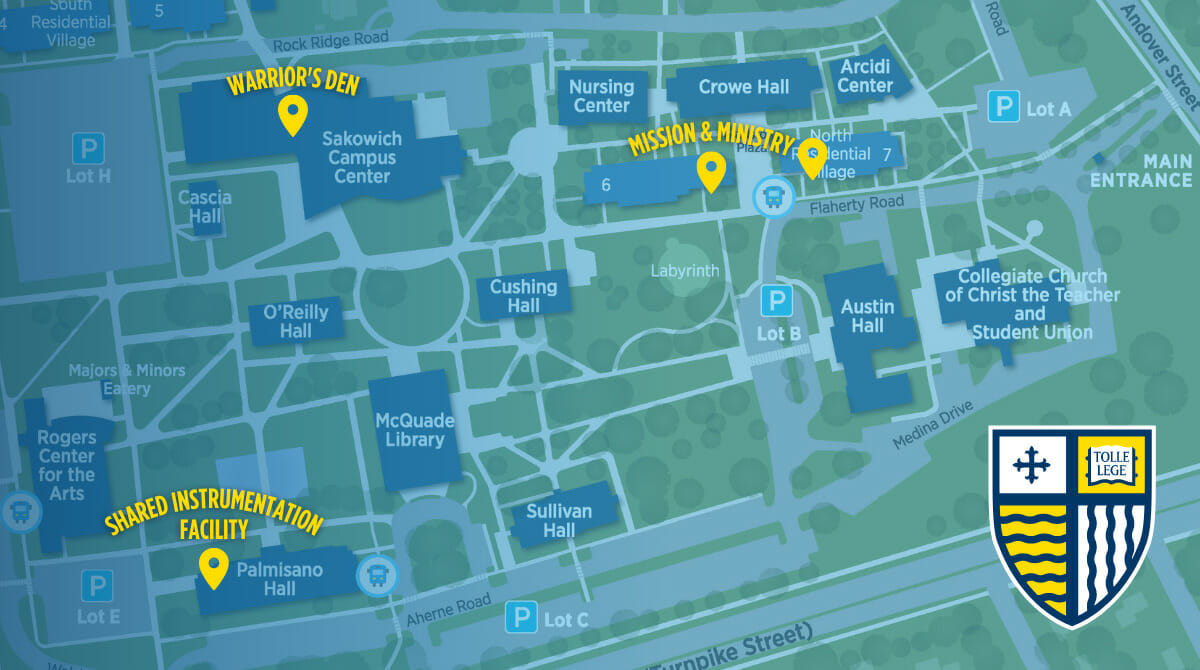Merrimack College’s Food Justice Research and Action Cluster (FJRAC) promotes research, practice and policy to reduce food justice disparities in our communities. Since 2021, our team has centered its projects around food justice in the Merrimack Valley.
Merrimack’s FJRAC was established in response to the drastic increase in food insecurity rates as a result of the COVID-19 pandemic. Food insecurity is defined as reduced food quality, variety, or desirability of diet. It can have serious short- and long-term consequences for children’s health, especially in populations of Hispanic and Black non-Hispanic children who are at higher risk for food insecurity.
The Food Justice Research and Action Cluster:
Greater Boston Food Bank
Feeding America
Feeding America
- Institute of Agriculture and Trade Policy
This course explores ethical and social justice issues involved in food and agricultural practices. It considers both questions of personal ethics and takes an ecological, systems-based approach to how food is produced, transported, distributed, marketed, prepared, and consumed. It examines key ethical and political theories and principles that can be used to evaluate choices, habits, and practices concerning food.
Read full course description
This course explores some of the many ways that what we eat is shaped and controlled by politics. In particular, the course topics center around helping students understand the ways that power dynamics and policy decisions in our political system shape what we eat and why.
Read full course description
Since 2021, FJRAC primary investigators and collaborators have engaged a number of students in projects and events centered around food justice in the Merrimack Valley. Projects and events have included:
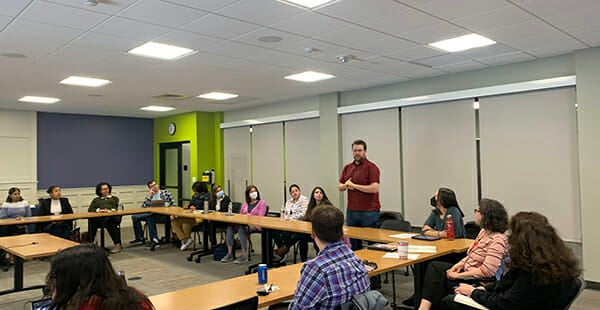
Merrimack faculty, staff and students present on food insecurity and their work to alleviate hunger in the Merrimack Valley at this annual event.
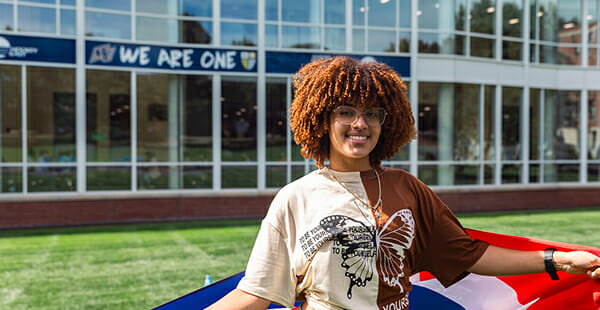
The Merrimack community comes together during April's Social Justice Month to discuss social justice issues, including food insecurity.
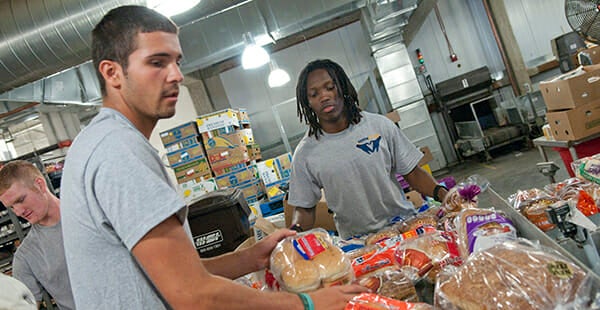
Boston University's Community Service Center has defined food justice and includes some related terms you should know.

The White House Conference on Hunger, Nutrition, and Health's goal is to end hunger and increase healthy eating/physical activity by 2030.
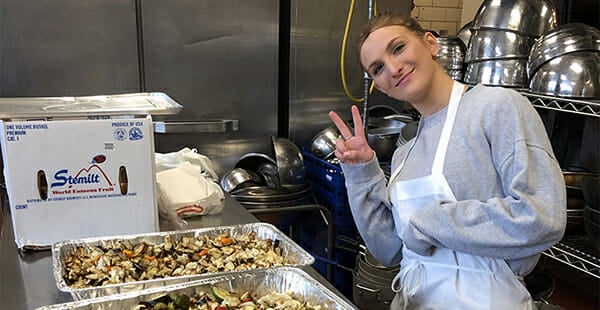
Merrimack’s chapter of the Food Recovery Network recovers perishable food that would go to waste from campus and donates it to those in need.

Located behind 27 Rock Ridge Road, the Merrimack Garden includes fruit, vegetables and flowers and is tended to by students, faculty and staff.
Merrimack's fall 2022 summit featured 11 speakers representing Andover, North Andover, Haverhill, Lawrence and Methuen, and more than 100 attendees including external community members, faculty, staff and students.
The Merrimack College Food Justice Research and Action Cluster is funded by the College’s Provost Innovation Fund. The fund is focused on supporting existing faculty-led scholarship projects and initiatives that engage with community partners and exemplify community engagement.
Team members Elaine Ward, Eleanor Shonkoff, Cynthia Carlson and Christopher Stuetzle frame the stages and timeline that led to the formation of the FJRAC in this institutional case study published in the Metropolitan Universities Journal.
The authors share the work of Merrimack faculty and leadership to affirm and institutionalize community engagement through community-engaged research and the development of FJRAC, connecting community priorities for food justice with faculty expertise.
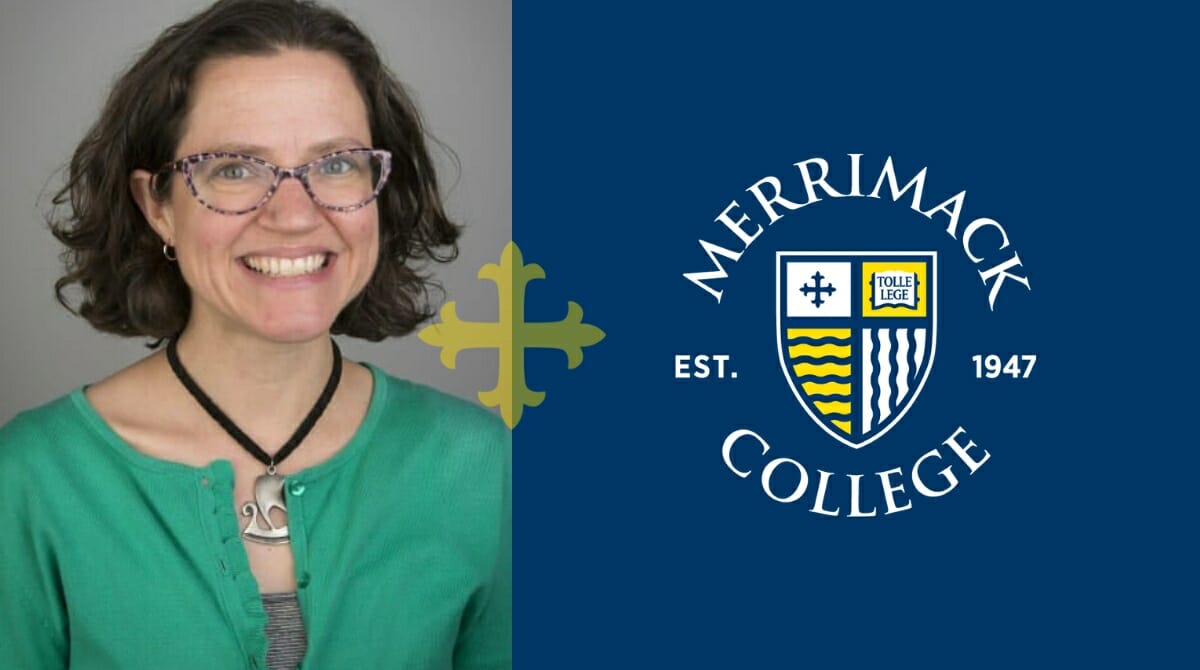
Associate Professor, Civil Engineering
Co-Director, Environmental Sciences and Sustainability
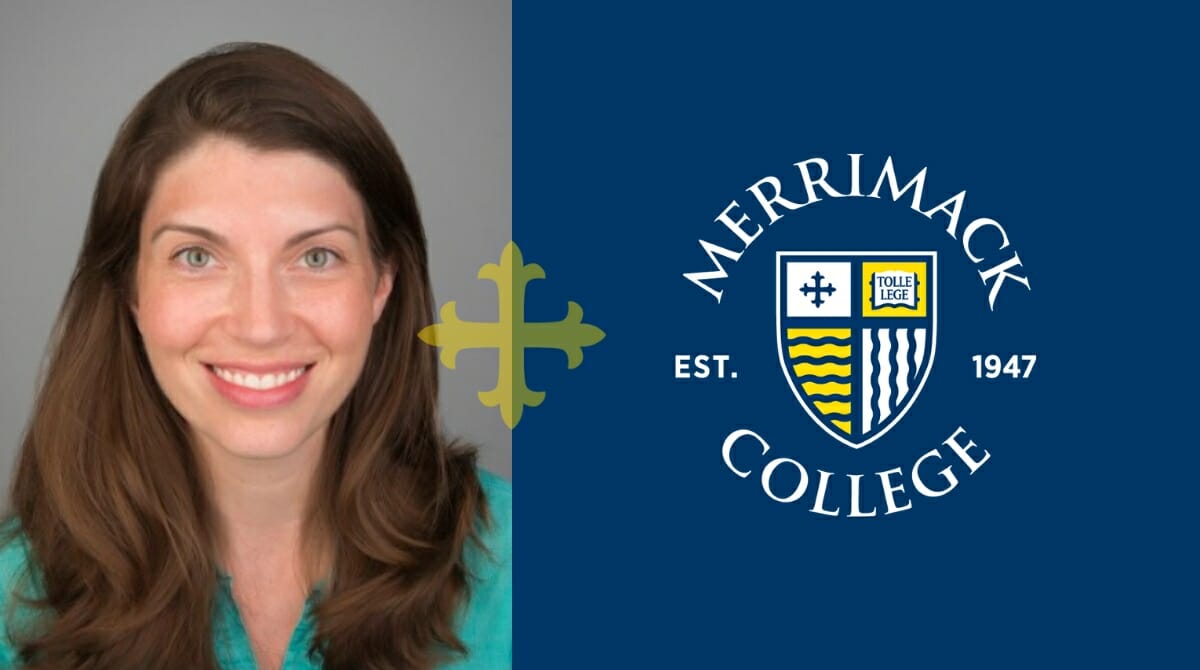
Associate Clinical Professor, Nutrition and Public Health
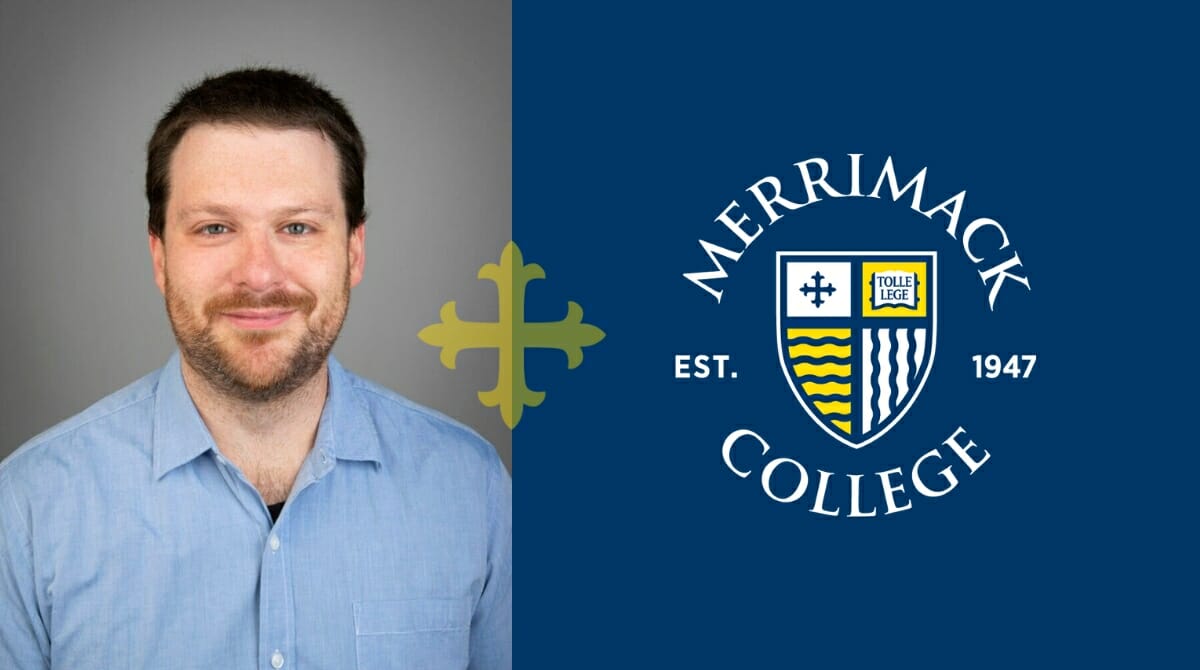
Associate Professor, Computer and Data Sciences
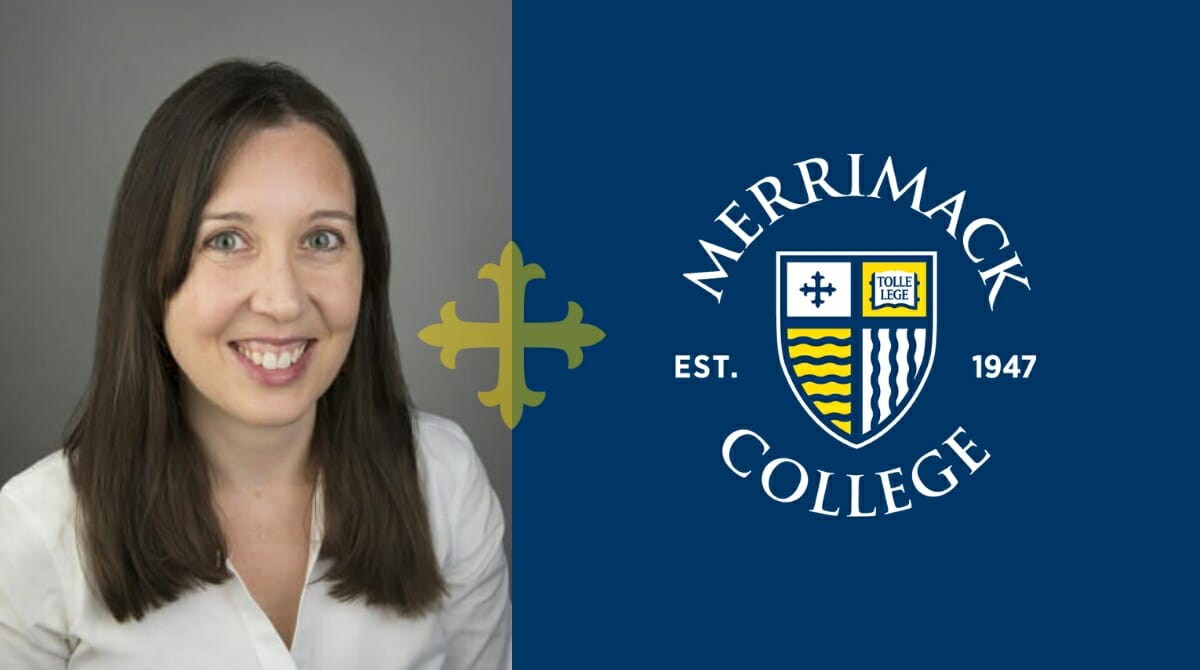

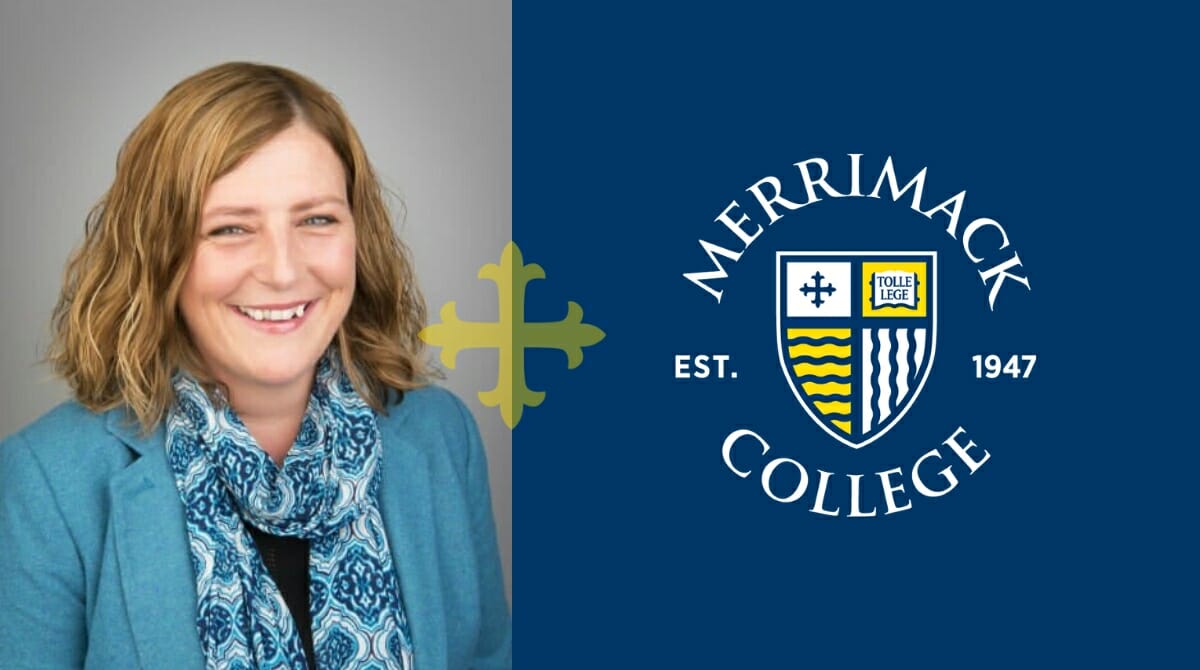
New construction and renovations across the College’s campus ensure community members have the space and resources to thrive.
